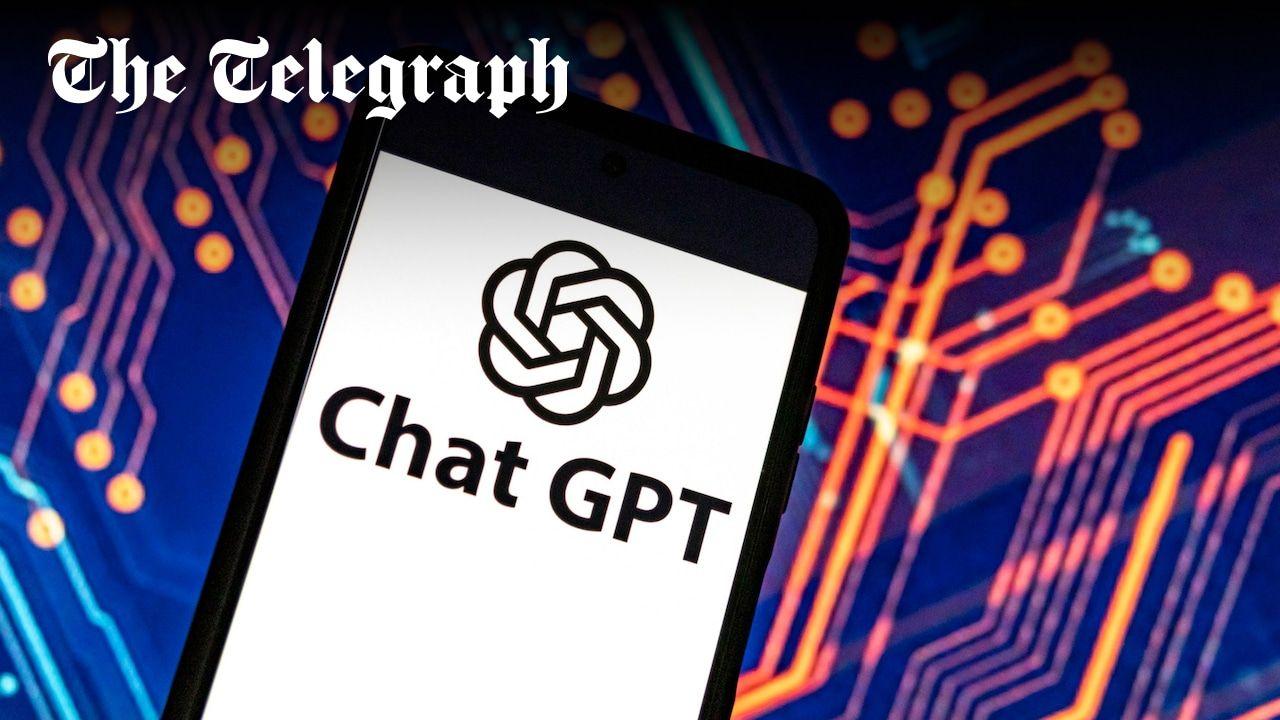ELIZA Resurrected: World's First Chatbot Revived After 60 Years
5 Sources
5 Sources
[1]
ELIZA Resurrected: World's First Chatbot Revived After 60 Years
ELIZA's original code, rediscovered and made functional after 60 years ELIZA, a chatbot developed in the 1960s and recognised as the world's first, has been revived using long-lost computer code found in archival records. Originally created by MIT professor Joseph Weizenbaum, ELIZA was designed as a conversational program capable of mimicking a psychotherapist's interactions. The project, conducted by researchers and archivists, marks a milestone in understanding early artificial intelligence and its impact on modern technology. Despite its simplicity compared to today's AI, ELIZA's ability to hold a conversation remains impressive. According to a paper posted on the preprint server arXiv, the chatbot's code was uncovered in 2021 by Jeff Shrager, a cognitive scientist at Stanford University, and Myles Crowley, an MIT archivist. Written in a now-obsolete programming language called MAD-SLIP, the original 420-line code had not been operational for six decades. The research team spent years debugging and creating a computer emulator capable of running the software. ELIZA's functionality was successfully restored on December 21, 2024. As reported by Live Science, researchers encountered a bug in the code but decided against fixing it, citing the need to preserve its historical integrity. Shrager explained to Live Science that altering the program would compromise its authenticity, likening it to modifying an iconic artwork. This decision highlights the importance placed on maintaining the original program's features, even at the cost of usability. Experts emphasised ELIZA's significance in shaping the development of artificial intelligence. David Berry, a digital humanities professor at the University of Sussex, stated that while modern language models surpass ELIZA in capability, its conversational design remains noteworthy. The chatbot was programmed to listen and prompt users, a feature seen as more conversationally authentic than many current AI systems. The revival of ELIZA draws attention to the need for preserving the history of computer science, as its legacy is considered a cultural artifact reflecting the early days of computational innovation.
[2]
World's first chatbot 'Eliza' revived from 60-year-old computer code
MIT professor named Joseph Weizenbaum, creator of the first chatbot Eliza Researchers have successfully revived "ELIZA," the world's first chatbot, utilizing original computer code that had been forgotten for nearly 60 years. Found in dusty printouts within the MIT archives, Eliza is the "Lucy" of AI Chatbots. This pioneering software was brought back to life by a team dubbed "software archaeologists." Developed in the 1960s by MIT professor Joseph Weizenbaum, ELIZA was named after Eliza Doolittle, the protagonist from the play "Pygmalion," who transforms her speech to pass as a member of high society.
[3]
World's first AI chatbot has finally been resurrected after decades
ELIZA is famous as a rudimentary artificial intelligence and the first ever chatbot, but versions found online today are actually knock-offs because the original computer code was lost - until now A groundbreaking chatbot created in the 1960s has been painstakingly reconstructed from archived records and run for the first time in over half a century, as part of an effort to preserve one of the earliest examples of artificial intelligence. ELIZA was written by computer scientist Joseph Weizenbaum at MIT in just 420 lines of code. The AI model is extremely rudimentary in comparison to today's large language models (LLMs) like ChatGPT but wowed researchers at the time with...
[4]
Scientists Have Resurrected ELIZA, the World’s First Chatbot
The original code, once thought lost, has been found and made to run again. On December 21, 2024, just before 2 pm, scientists made the dead speak. ELIZA, the world’s first chatbot is back. Long imitated, but not perfectly replicated, ELIZA has long been thought lost. But scientists discovered an early version of its code in the archives of its creator in 2021 and have spent the intervening years piecing it back together. ELIZA has been reanimated and you can download it here to see for yourself. Coded and iterated from 1964 to 1967, ELIZA was developed by MIT computer scientist Joseph Weizenbaum. Rudimentary by today’s standards, ELIZA was a hit at the time of its creation. He gave it the personality of a psychotherapist and his secretary was so enchanted by it, that she asked Weizenbaum to leave the room when she chatted with it. A new scientific paper from members of the ELIZA Archeology Project details how they found and resurrected the chatbot as well as its origins and subsequent dissemination. Weizenbaum programmed ELIZA in an early language called MAD-SLIP on a time-sharing computer system called the Compatible Time-Sharing System or CTSS. ELIZA quickly got away from Weizenbaum. As it disseminated through early computer networks, programmers adapted it into other languages. One of these early clones was built in Lisp by one of the technical leads of ARPAnet, the precursor to the modern internet. The Lisp version of Eliza was one of the first bits of data on this nascent network and it spread fast. “As a result, Cosell’s Lisp ELIZA rapidly became the dominant strain, and Weizenbaum’s MAD-SLIP version, invisible to the ARPAnet, was left to history,†the paper said. “Until it was rediscovered in 2021, the original MAD-SLIP ELIZA had not been seen by anyone for at least 50 years.†A decade later, a magazine called Creative Computing published an ELIZA clone written in BASIC. It was 1977, the same year that the Apple II, Commodore Pet, and TRS-80 all hit the market. Those machines led to an explosion in home computing and the proliferation of the BASIC computing language. “And probably not a small number of those hobbyists were interested enough by the possibility of AI to type in this BASIC ELIZA (which was only a couple of pages of code), and experiment with it themselves,†the scientists said. “Because of its brevity and simplicity, and the personal computer explosion, this ELIZA begat hundreds of knock-offs through the decades, in every conceivable programming language, making it perhaps the most knocked-off program in history/ Just as Cosell’s Lisp ELIZA spread via the ARPANet, the BASIC ELIZA spread via the explosive contagion of personal computers.†There are countless versions of this BASIC version of ELIZA online right now and the original MAD-SLIP version was long thought lost to history. Then Stanford computer scientist Jeff Shrager convinced MIT archivists to root through boxes of Weizenbaum’s material and they made a critical discovery: early versions of the MAD-SLIP code. The code was incomplete, and it took a lot of tinkering and complicated emulation to get it running again. “It required numerous steps of code cleaning and completion, emulator stack installation and debugging, non-trivial debugging of the found code itself, and even writing some entirely new functions that were not found in the archives or in the available MAD and SLIP implementations,†the paper said. It took time and a lot of effort, but the code archaeologists got ELIZA working again and they’ve made it available for anyone to play with. “This has been tested on various Linux and MacOS versions, but we’ve noticed some issues with different versions, so your mileage may vary,†they said in the paper. “If you get it working on your machine and find that you have to change something, let us know.â€
[5]
'ELIZA,' the world's 1st chatbot, was just resurrected from 60-year-old computer code
ELIZA creator Joseph Weizenbaum sits at a computer in 2005. (Image credit: Alamy) Scientists have just resurrected "ELIZA," the world's first chatbot, from long-lost computer code -- and it still works extremely well. Using dusty printouts from MIT archives, these "software archaeologists" discovered defunct code that had been lost for 60 years and brought it back to life. ELIZA was developed in the 1960s by MIT professor Joseph Weizenbaum and named for Eliza Doolittle, the protagonist of the play "Pygmalion," who was taught how to speak like an aristocratic British woman. As a language model that the user could interact with, ELIZA had a significant impact on today's artificial intelligence (AI), the researchers wrote in a paper posted to the preprint database arXiv Sunday (Jan. 12). The "DOCTOR" script written for ELIZA was programmed to respond to questions as a psychotherapist would. For example, ELIZA would say, "Please tell me your problem." If the user input "Men are all alike," the program would respond, "In what way." Weizenbaum wrote ELIZA in a now-defunct programming language he invented, called Michigan Algorithm Decoder Symmetric List Processor (MAD-SLIP), but it was almost immediately copied into the language Lisp. With the advent of the early internet, the Lisp version of ELIZA went viral, and the original version became obsolete. Related: Google's AI tells users to add glue to their pizza, eat rocks and make chlorine gas Experts thought the original 420-line ELIZA code was lost until 2021, when study co-author Jeff Shrager, a cognitive scientist at Stanford University, and Myles Crowley, an MIT archivist, found it among Weizenbaum's papers. "I have a particular interest in how early AI pioneers thought," Shrager told Live Science in an email. "Having computer scientists' code is as close to having a record of their thoughts, and as ELIZA was -- and remains, for better or for worse -- a touchstone of early AI, I want to know what was in his mind." But why the team wanted to get ELIZA working is more complex, he said. "From a technical point of view, we did not even know that the code we had found -- the only version ever discovered -- actually worked," Shrager said. So they realized they had to try it. Reanimating ELIZA Bringing ELIZA back to life was not straightforward. It required the team to clean and debug the code and create an emulator that would approximate the kind of computer that would have run ELIZA in the 1960s. After restoring the code, the team got ELIZA running -- for the first time in 60 years -- on Dec. 21. "By making it run, we demonstrated that this was, in fact, a part of the actual ELIZA lineage and that it not only worked, but worked extremely well," Shrager said. But the team also found a bug in the code, which they elected not to fix. "It would ruin the authenticity of the artifact," Shrager explained, "like fixing a mis-stroke in the original Mona Lisa." The program crashes if the user enters a number, such as "You are 999 today," they wrote in the study. Even though it was intended to be a research platform for human-computer communication, "ELIZA was such a novelty at the time that its 'chatbotness' overwhelmed its research purposes," Shrager said. Related: 32 times artificial intelligence got it catastrophically wrong That legacy continues today, as ELIZA is often compared to current large-language models (LLMs) and other artificial intelligence. Even though it does not compare to the abilities of modern LLMs like ChatGPT, "ELIZA is really remarkable when you consider that it was written in 1965," David Berry, a digital humanities professor at the University of Sussex in the U.K. and co-author of the paper, told Live Science in an email. "It can hold its own in a conversation for a while." One thing ELIZA did better than modern chatbots, Shrager said, is listen. Modern LLMs only try to complete your sentences, whereas ELIZA was programmed to prompt the user to continue a conversation. "That's more like what 'chatting' is than any intentional chatbot since," Shrager said. "Bringing ELIZA back, one of the most -- if not most -- famous chatbots in history, opens people's eyes up to the history that is being lost," Berry said. Because the field of computer science is so forward-looking, practitioners tend to consider its history obsolete and don't preserve it. Berry, though, believes that computing history is also cultural history. "We need to work harder as a society to keep these traces of the nascent age of computation alive," Berry said, "because if we don't then we will have lost the digital equivalents of the Mona Lisa, Michelangelo's David or the Acropolis."
Share
Share
Copy Link
Scientists have successfully revived ELIZA, the world's first chatbot, using original computer code discovered after 60 years. This milestone in AI history offers insights into early artificial intelligence and its impact on modern technology.

The Resurrection of ELIZA: A Milestone in AI History
In a remarkable feat of digital archaeology, scientists have successfully revived ELIZA, the world's first chatbot, from computer code that had been lost for nearly 60 years. This groundbreaking achievement not only resurrects a piece of computing history but also provides valuable insights into the early days of artificial intelligence
1
2
.Uncovering the Lost Code
The journey to resurrect ELIZA began in 2021 when Stanford computer scientist Jeff Shrager and MIT archivist Myles Crowley discovered the original code among the papers of ELIZA's creator, MIT professor Joseph Weizenbaum
3
. Written in a now-obsolete programming language called MAD-SLIP, the 420-line code had not been operational for six decades1
.The Restoration Process
Bringing ELIZA back to life was no small feat. The research team, dubbed "software archaeologists," spent years debugging the code and creating a computer emulator capable of running the software
1
4
. Their efforts paid off on December 21, 2024, when ELIZA was successfully restored to functionality2
.ELIZA's Historical Significance
Developed in the 1960s, ELIZA was designed to mimic a psychotherapist's interactions
1
. Named after Eliza Doolittle from the play "Pygmalion," the chatbot quickly gained fame for its ability to engage in conversation, despite its rudimentary nature compared to today's AI systems2
5
.Preserving Digital Heritage
The team made a conscious decision to maintain the historical integrity of the code, even preserving a bug that causes the program to crash when numbers are entered
5
. This approach underscores the importance of treating early computer programs as cultural artifacts4
.Related Stories
Impact on Modern AI
While ELIZA's capabilities pale in comparison to modern language models like ChatGPT, experts emphasize its significance in shaping AI development
1
5
. David Berry, a digital humanities professor at the University of Sussex, noted that ELIZA's conversational design remains noteworthy, particularly its ability to listen and prompt users – a feature some consider more authentic than many current AI systems1
5
.A Call for Digital Preservation
The resurrection of ELIZA highlights the need for better preservation of computing history. As Berry points out, "We need to work harder as a society to keep these traces of the nascent age of computation alive," comparing the loss of such digital artifacts to losing cultural treasures like the Mona Lisa or Michelangelo's David
5
.ELIZA's Legacy and Availability
ELIZA's influence extends beyond its initial creation. Its code was adapted into various programming languages and spread through early computer networks, making it "perhaps the most knocked-off program in history"
4
. Now, with the original version restored, researchers have made it available for anyone to experience this piece of AI history firsthand4
.References
Summarized by
Navi
[2]
[3]
Related Stories
ChatGPT Initiates Conversations: OpenAI Clarifies Unexpected Behavior as a Bug
16 Sept 2024

OpenAI Reverses Course on GPT-5 Launch, Brings Back GPT-4o Amid User Backlash
09 Aug 2025•Technology

Clippy Resurrected: Microsoft's Iconic Assistant Returns as AI-Powered Local LLM Interface
08 May 2025•Technology

Recent Highlights
1
ByteDance's Seedance 2.0 AI video generator triggers copyright infringement battle with Hollywood
Policy and Regulation

2
Demis Hassabis predicts AGI in 5-8 years, sees new golden era transforming medicine and science
Technology

3
Nvidia and Meta forge massive chip deal as computing power demands reshape AI infrastructure
Technology





